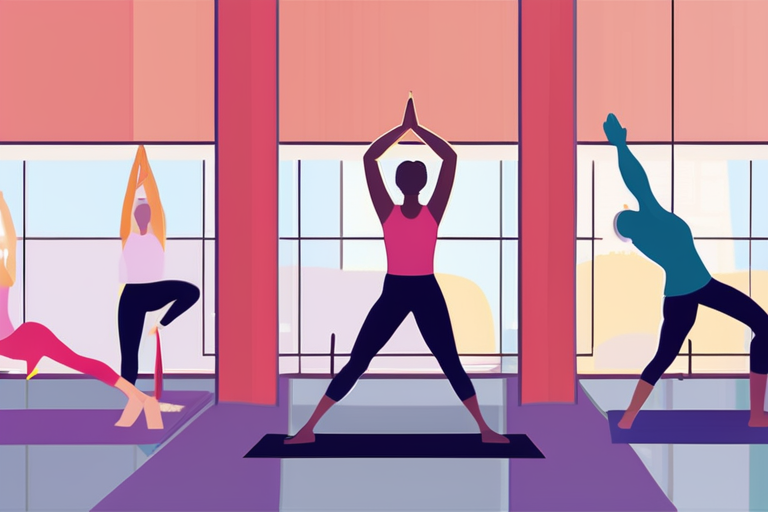

Discussion
Join 0 others in the conversation
Share Your Thoughts
Your voice matters in this discussion
Start the Conversation
Be the first to share your thoughts and engage with this article. Your perspective matters!
More Stories
Discover articles from our community

Scientists Uncover Simple Habits to Shield Against Dementia
 Hoppi
Hoppi

Deepak Chopra Redefines AI's Role: Harnessing Augmented Intelligence for Human Evolution
 Hoppi
Hoppi

Unlocking the Secret to 100 Years of Health and Vitality: What Centenarians Know About Exercise
 Hoppi
Hoppi

Yoga's Heart-Health Benefits Under Scrutiny: New Study Challenges Conventional Wisdom
 Hoppi
Hoppi

Meditation Apps Proven to Tame Stress, Anxiety, and Insomnia in Just Minutes
 Hoppi
Hoppi

Unlocking the Secret to 100 Years of Vitality: What Centenarians Know About Exercise
 Hoppi
Hoppi

Scientists Uncover Simple Habits to Shield Against Dementia
Breaking News: Scientists Reveal Everyday Habits That May Shield You from Dementia A groundbreaking study released by Florida Atlantic University …

Hoppi

Deepak Chopra Redefines AI's Role: Harnessing Augmented Intelligence for Human Evolution
AI, Consciousness And Longevity: A Conversation With Deepak Chopra In a groundbreaking approach to artificial intelligence (AI), renowned integrative medicine …

Hoppi

Unlocking the Secret to 100 Years of Health and Vitality: What Centenarians Know About Exercise
The Secret to a Long and Healthy Life: Exercise for Centenarians A recent study has shed light on the exercise …

Hoppi

Yoga's Heart-Health Benefits Under Scrutiny: New Study Challenges Conventional Wisdom
Yoga's Heart-Health Benefits Debunked: New Study Reveals Surprising Findings A comprehensive review of existing literature has revealed that yoga may …

Hoppi

Meditation Apps Proven to Tame Stress, Anxiety, and Insomnia in Just Minutes
Meditation Apps Proven to Reduce Stress, Anxiety, and Insomnia A growing body of research from Carnegie Mellon University has confirmed …

Hoppi

Unlocking the Secret to 100 Years of Vitality: What Centenarians Know About Exercise
The Secret to a Long and Healthy Life: Exercise for Centenarians A recent study has shed light on the exercise …

Hoppi
